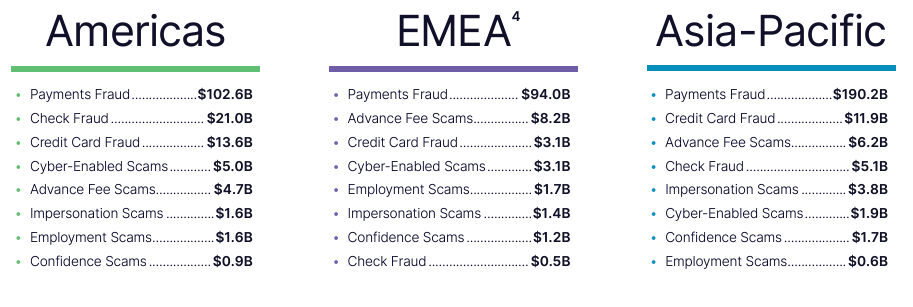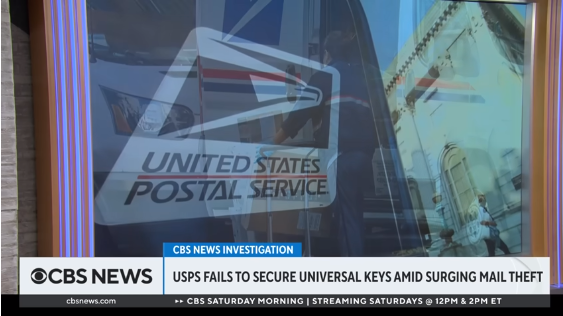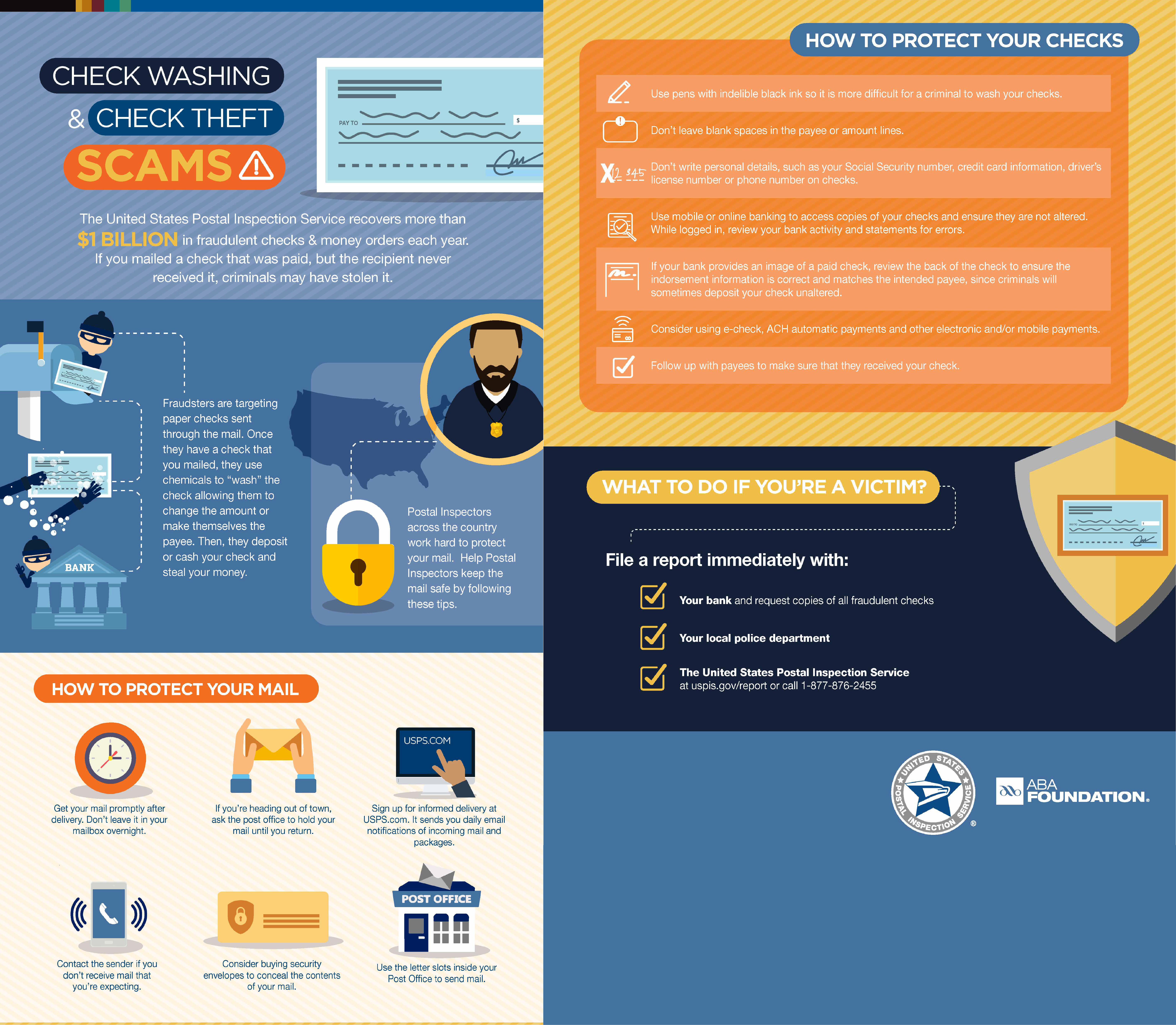OrboNation Newsletter: Check Processing and Fraud – April 2024
Is Instant Disbursement the Answer to Fraud?
As we all know, check fraud continued to surge in 2023, and is likely to surge in 2024. A post at PYMNTS.com reported estimates by the Financial Crimes Enforcement Network that check fraud has increased by double-digit percentage points, with stolen mail and alteration of checks being a major factor.
PYMNTS.com argues that digital disbursements can be the remedy for check fraud, and goes on to say that the following is among the remedies recommended by the Fed:
Disbursements offer an avenue by which digital payments can continue to grow — and corporates and government agencies can cut down on paper check issuance, and by extension, hobble at least some check fraud.

While this advice may seem fine on its face, it should be noted that data from the PYMNTS survey covers only the consumer side -- there is no B2B information weighed in. Also, their stats remain in the "less than half" zone, which means a majority isn't behind the idea of paying fees
OrboGraph Awarded AI Excellence Award by the Business Intelligence Group for Innovations in Check Fraud Detection
OrboAnywhere Sherlock 5.3 Release blends consortium and dark web monitoring with image forensics
Burlington, MA, March 26, 2024 – OrboGraph, a premier supplier of check processing automation and fraud detection software and services, has won the prestigious AI Excellence Award in the Hybrid Intelligent Systems category for significant contributions to enhancing check fraud detection capabilities through its integrations to leverage consortium data from Advanced Fraud Solutions (AFS) TrueChecks®, along with the ThreatAdvice dark web monitoring service called Dark Defend. This is the third consecutive year that OrboGraph has won this award.

OrboGraph has been at the forefront of combating the surge in check fraud, which has seen a 3-4X increase from pre-pandemic levels. Leveraging OrbNet Forensic AI technology, the OrboGraph OrboAnywhere suite has achieved remarkable success, boasting detection rates as high as 95%+ on counterfeits, forgeries, and alterations.
Telegram: Understanding Why Fraudsters Use It
We all seem to know at least one person who has been the victim of an online scammer. Social media, unfortunately, provides a fruitful venue for scammers looking for victims.
Social media -- specifically the popular messaging app called Telegram -- provides an easy-to-access marketplace for fraud tools. In fact, Telegram's reputation as a "one-stop shop" for fraudsters has made it notorious enough to get a label of its own, as reported in a post at Flare:
Telegram fraud refers to any malicious or deceitful activity that takes place on the Telegram messaging app. The rise of telegram fraud and cybercrime is due in part to the ease of channel creation and user anonymity of the app.

PYMNTS.com Shines Light on the Importance of FinTech Partnerships for FI Digital Transformation
PYMNTS.com explores how the digital transformation of banking continues to reshape how financial institutions (FIs) are meeting the evolving expectations of consumers. Central to this evolution are partnerships, which play a pivotal role in enhancing customer experiences and streamlining financial processes.
A recent collaboration between Bankjoy, a provider of digital banking solutions for banks and credit unions across the U.S., and Pinwheel, a FinTech company specializing in digital deposit switching (DDS), exemplifies this trend.

The partnership represents a significant step towards revolutionizing the process of setting up direct deposits, a process traditionally known for its paperwork-heavy nature and time-consuming procedures. Pinwheel’s digital deposit switching solution, Pinwheel Prime, now offers a seamless platform for users to manage their direct deposits efficiently, enabling them to switch, track, and manage their income streams effortlessly.
The FED: Decrease in Check Volume Doesn’t Mean Decrease in Check Fraud
Jessica Washington, AAP, assistant vice president in the Retail Payments Risk Forum of the Federal Reserve Bank of Atlanta, notes in a post at their blog, Take On Payments, that check volume has been declining. However, check fraud is booming, with financial institutions reporting unprecedented losses due to soaring check fraud.

Even in 2024, US consumers and businesses have an appetite for check payments. Unfortunately, so do the fraudsters who prey on payment processing gaps.
Causes of the surge in check fraud include factors we've explored before: mail theft, images of checks sold on the dark web, and fake check ATM deposits.
CBS News Reports Disturbing Data on USPS Universal “Arrow” Keys
CBS News reports that while the US Postal Service claims to be applying "rigorous action" to the mounting problem of mail theft -- checks, packages, and the sensitive information that identity thieves crave -- the postal service seems to be paying "lip service" to their claim of heightened security.
But even as mail theft skyrocketed, from fewer than 60,000 complaints in 2018 to more than 250,000 in 2023, a CBS News investigation has found the postal service is not consistently taking steps to secure millions of universal "arrow keys" that open bulk mailboxes in apartment buildings and neighborhoods coast to coast.

A CBS News review of thousands of pages of audits, court records and agency documents obtained under the Freedom of Information Act show postal workers and supervisors not tracking the keys, not locking them up and not reporting them missing.
Fintech Futures: Are Legacy Core Systems the Banking Equivalent of “Kodak” and “Blockbuster”?
At Fintech Futures, banking industry veteran Dharmesh Mistry argues that that many banks still rely on outdated legacy core banking systems that do batch overnight processing -- once considered very fast and efficient -- rather than engaging truly real-time analysis.
It’s hard to quantify exactly how many, but a significant number of banks – I would guess at least 50% – are still running on legacy core banking systems that have overnight batch processes. These batch processes update ledgers with charges, interest and transactions that could not be processed in real time or near real time.
Mr. Mistry puts forward reasons he believes some banks are lagging behind, mostly related to the fact that their systems were created when tech was still in development...

Starting from the Beginning: Common Check Fraud Scams and Examples
While many of our blogs take an in-depth look into different topics and trends surrounding check fraud, it's important to remind ourselves of the various types of check fraud and stay abreast of the different scams fraudsters are using.
We recently detailed a glossary of fraud terms created by Eric Huber, Cybercrime Research & Analysis Leader at TD Bank. Now, our friends and fellow #FraudFighters at Alogent took to their blog to provide a concise and useful list of methods fraudsters regularly deploy for check fraud.
Bank M&A: Fraud Concerns with Legacy Systems
Mergers & acquisitions are commonplace in the banking. Whether it's two financial institutions looking to strengthen their positions and boost assets, or expand their footprint across the US or even globally. These financial institutions will go through rigorous due diligence to ensure that both parties are healthy -- however, there are times when one side is struggling and looking for a way to ensure that their business will survive.
In a recent post at PYMNTS, acting Comptroller of the Currency at the OCC Michael Hsu supports the FDIC's proposal for increased scrutiny on bank mergers exceeding $100 billion in combined assets.
Understanding the Bitcoin Halving: Implications for Investors and Payments

One of the hottest topics in the news this week is Bitcoin Halving. The Bitcoin network is built on a foundation of scarcity and decentralization, with Bitcoin halving playing a pivotal role in both. This event, occurring approximately every four years, is not only a scheduled element of the Bitcoin monetary policy but also a significant occurrence that affects investors, the cryptocurrency's price stability, and its acceptance as a form of payment.
Ex-US Secret Service Member Recounts the History of Check Fraud Investigations
Some may be surprised to see the Secret Service mentioned in conjunction with financial crimes. Don't they wear dark glasses and guard the President and other government figures?
Matt O'Neill, whose United States Secret Service (USSS) title was Deputy-in-Charge Cybercrime, explains:

For those who are unaware of the history of the USSS, the agency was founded in 1865 in the U.S. Department of the Treasury in order to combat a massive amount of counterfeit currency circulating in the country at the close of the U.S. Civil War. It wasn’t until 1901, after the murders of three U.S. Presidents that the USSS was given the responsibility of protecting the President of the United States. When the USSS was founded, the only other Federal law enforcement agencies in existence were the U.S. Marshal Service and the U.S. Postal Inspection Service (USPIS).
Push Notifications – Putting the Onus of Check Fraud on Consumers?
In an article at Refine Intelligence, Daniel Shkedi, Head of Product Marketing & Strategy at Refine Intelligence, opens with a flashback:
Late one restless night in 2023, I found myself in front of the television, mindlessly flipping through channels until I stumbled upon a classic: Steven Spielberg’s Catch Me If You Can. Captivated by Frank Abagnale's exploits in check fraud, I couldn't help but wonder: why aren't modern-day fraudsters still employing such elaborate schemes? As the ending credits rolled, my curiosity arose, pushing me to dive deeper into the world of check fraud in the U.S banking industry.

Check fraud is on the rise in the US, with reported cases nearly doubling from 2020 to 2022. The article goes on to explore common methods used by fraudsters, including "glass check fraud" which involves theft of mailed checks, "check washing" to alter check details, counterfeiting authentic-looking fake checks, and account takeover to initiate fraudulent transactions.
Drivers for Upgrading Core Systems in Banking
At Fintech Futures, Principal Fintech Analyst at Omdia Philip Benton takes a look at the state of core banking systems. He appropriates his fellow FinTech Futures columnist Dharmesh Mistry's definition:
To define core banking, Dharmesh uses Acronym Finder’s definition of “centralised online real-time exchange” and explains core banking technology as “Software that manages accounts – be that your current account, deposit or loans. Each time money is taken out, core banking debits your account, and when money is put in, a credit is applied.”

New Cooperative Effort to Fight Mail Fraud
The American Bankers Association and the U.S. Postal Inspection Service have announced a cooperative effort to combat check fraud, kicking off the partnership with a rather extraordinary new infographic designed to educate consumers about what they can do to protect their mail and their checks.

With mail theft on the rise, it's indeed a very good idea for the Post Office to leverage as many effective alliances as possible -- including the US Congress -- in their ongoing defense of parcels as well as increasing safety for their personnel, who have been assaulted by persons looking to procure checks and parcels.
The infographic covers the following topics:
- Check Washing & Check Theft Scams
- How to Protect Your Mail
- How to Protect Your Checks
- What to Do If You’re a Victim

